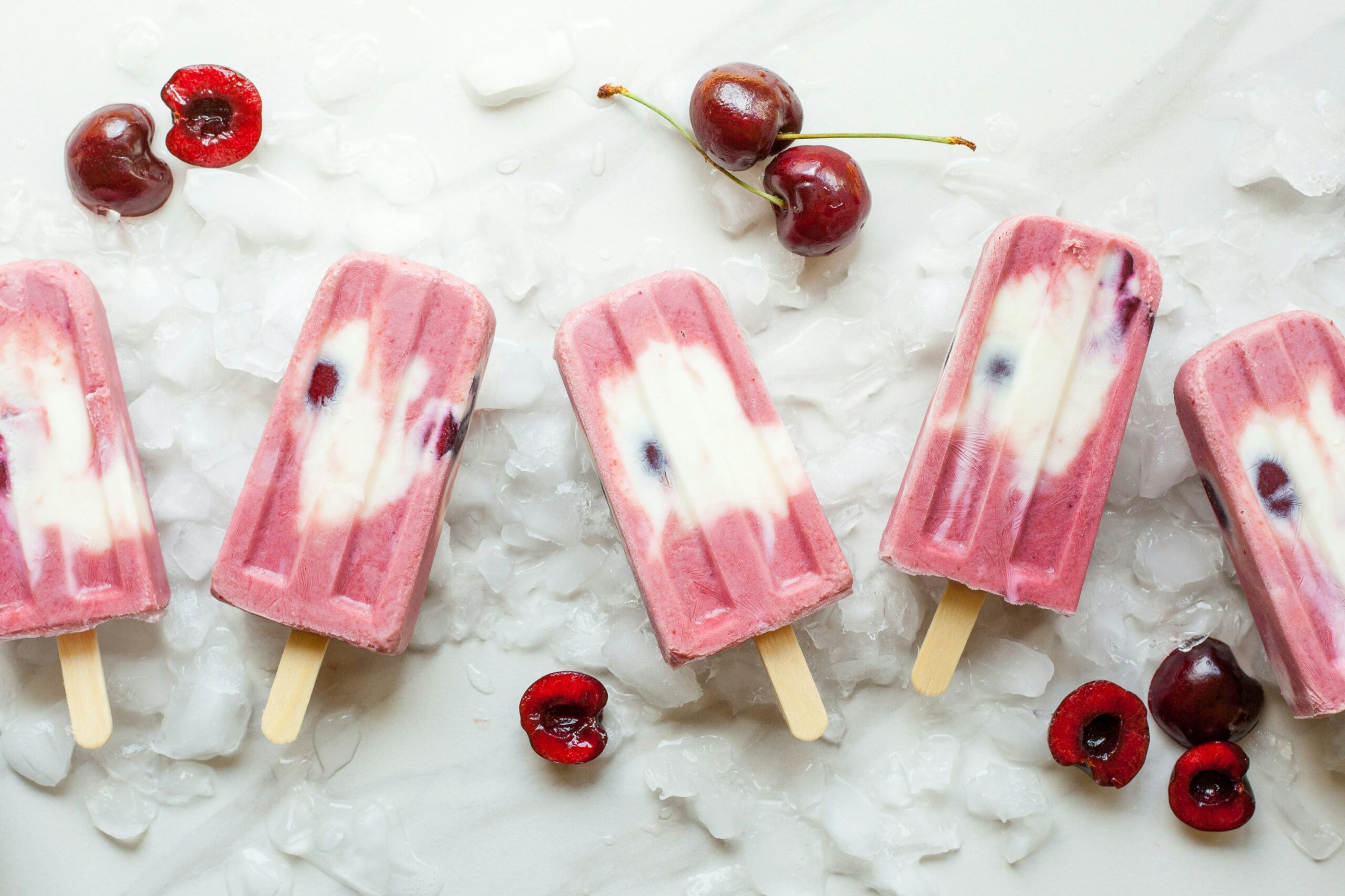

Nobody wants their child’s summer fun to be spoiled by tooth pain or cavities.
However, many iced treats popular in summer contain lots of sugar that causes decay. Because taste buds don’t work as well when they get cold, manufacturers often add extra sugar to ice lollies to guarantee a sweet taste. But saying no every time the ice cream van approaches might feel unnecessarily harsh – especially if you have fond memories of enjoying the occasional lolly when you were young.
So how can you say yes to an ice lolly without hurting your child’s teeth? First, it’s helpful to understand why too many iced treats could spell dental pain or decay…
Sugar!
Sugar and bacteria work together to create acid that can cause decay and tooth pain.
A lolly may list sugar as an ingredient, but other ingredients commonly in lollies are sugar by another name. Popular iced lolly brands sometimes contain fruit juice concentrate, glucose syrup, fructose and dextrose, which all do the same work as table sugar on the teeth. Other natural sugars like honey and fruit juice should also be eaten in moderation. A sweet treat is considered low sugar for adults if it’s less than 5g sugar per 100g. 22.5g per 100g or more is high sugar for adults, and is more than most children should have in a whole day!
Do a little maths…
The NHS suggests that 30g of sugar is OK for adults per day. But children are much smaller, so the healthy amount of sugar for them is also lower. Children aged 7 to 10 should have no more than 24g per day. Aged 4 to 6, this falls to 19g. Children aged 2 to 3 should have no more than 14g natural or added sugar per day. That’s 3 and a half sugar cubes. The amount of sugar in lollies really varies, so it’s good to read the label to check.
And watch how you chomp the ice…
Although eating a lolly more quickly means less exposure time to sugar, it’s good to be aware of the damage that can be caused by biting or chewing fully frozen ice. The crystals in ice can scratch away children’s soft enamel. Ice can also damage fillings and can even fracture teeth.
Even little fractures or small scratches can allow bacteria to get into your teeth, causing decay.
Some delicious alternatives
If your child isn’t fond of sugar-free lollies, you can make your own treats. Many kitchen shops sell home lolly kits, or you can just make small lollies by freezing fruit juice and lolly sticks in ice cube trays. Although fruit juices do contain sugar, they contain nutrients. If eaten after meals, the acid from the fruit, as well as the sugars won’t have such a strong effect.
If children visit the dentist regularly, brush their teeth twice a day, eat healthy food and drink lots of water, there is no reason their teeth can’t last them a lifetime, even if they do enjoy an ice lolly now and then.


BRACES


BONDING


Dental Health Plan
We are accepting new patients, book an introduction call today
Book An Introduction Call
Life gets busy — we get it.
If your healthy mouth review has slipped down the to-do list, this is your gentle reminder 💚
We’re here to help you stay healthy, comfortable and smiling with confidence.
📍 Portishead | 📅 Book your appointment today.


🕝 The Two Thirty series
Are sleep apnoea mouthguards effective? 😴
Yes — for many people with mild to moderate sleep apnoea, they can work really well.
In this video, Maggie explains how mouthguards help, and why more severe cases may need further assessment through a medical sleep service.
Clear answers to important questions — watch now 👆
#TheTwoThirty #DentalAdvice #SleepApnoea #BetterSleep #DentalFAQs


🕝 The Two Thirty series
Is fluoride good for your teeth? 🪥
Yes — and Carol explains why in this quick video.
She also shares some reassurance: every main toothpaste brand you’ll find in the supermarket contains fluoride, so you don’t need anything fancy to look after your teeth well.
Straightforward answers to everyday dental questions.
Watch now
#TheTwoThirty #DentalAdvice #OralHealthTips #Fluoride #DentalFAQs


What an achievement, 350km across Tanzania, raising funds for Bridge2Aid, we are all so proud of Carols efforts. We can’t wait to hear all about it when you get back.
Carol is just 8% away from her fundraising target, if you can help her reach it please donate on her just giving page - link in bio.


It’s never too late to love your smile 💚
Teeth straightening at Evolve is tailored, gentle and designed to fit around real life.
We’ll help you explore the right option for you — with no pressure.
📅 Book a consultation to get started.


🦷 Did you know some early studies suggest hydroxyapatite toothpaste may help reduce the risk of cavities? Carol explains how this natural ingredient can strengthen enamel and support a healthier smile.
It’s an exciting development in daily dental care, and could be a great addition to your routine!





